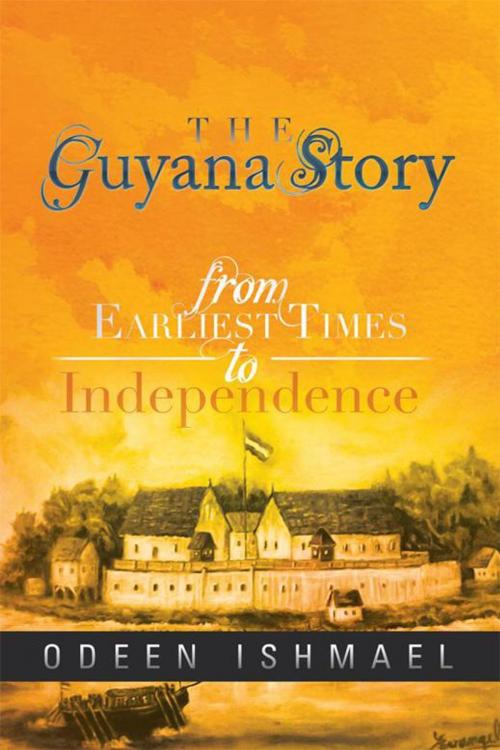| Author: | Odeen Ishmael | ISBN: | 9781479795901 |
| Publisher: | Xlibris US | Publication: | February 28, 2013 |
| Imprint: | Xlibris US | Language: | English |
| Author: | Odeen Ishmael |
| ISBN: | 9781479795901 |
| Publisher: | Xlibris US |
| Publication: | February 28, 2013 |
| Imprint: | Xlibris US |
| Language: | English |
The Guyana StoryFrom Earliest Times to Independence traces the countrys history from thousands of years ago when the first Amerindian groups began to settle on the Guyana territory. It examines the period of early European exploration leading to Dutch colonization, the forcible introduction of African slaves to work on cotton and sugar plantations, the effects of European wars, and the final ceding of the territory to the British who ruled it as their colony until they finally granted it independence in 1966. The book also tells of Indian, Chinese, and Portuguese indentured immigration and shows how the cultural interrelationships among the various ethnic groups introduced newer forms of conflict, but also brought about cooperation in the struggles of the workers for better working and living conditions. The final part describes the roles of the political leaders who arose from among these ethnic groups from the late 1940s and began the political struggle against colonialism and the demand for independence. This struggle led to political turbulence in the 1950s and early 1960s when the country was caught in the crosshairs of the cold war resulting in joint British-American devious actions that undermined a democratically elected pro-socialist government and deliberately delayed independence for the country until a government friendly to their international interests came to power.
The Guyana StoryFrom Earliest Times to Independence traces the countrys history from thousands of years ago when the first Amerindian groups began to settle on the Guyana territory. It examines the period of early European exploration leading to Dutch colonization, the forcible introduction of African slaves to work on cotton and sugar plantations, the effects of European wars, and the final ceding of the territory to the British who ruled it as their colony until they finally granted it independence in 1966. The book also tells of Indian, Chinese, and Portuguese indentured immigration and shows how the cultural interrelationships among the various ethnic groups introduced newer forms of conflict, but also brought about cooperation in the struggles of the workers for better working and living conditions. The final part describes the roles of the political leaders who arose from among these ethnic groups from the late 1940s and began the political struggle against colonialism and the demand for independence. This struggle led to political turbulence in the 1950s and early 1960s when the country was caught in the crosshairs of the cold war resulting in joint British-American devious actions that undermined a democratically elected pro-socialist government and deliberately delayed independence for the country until a government friendly to their international interests came to power.















